This 17-year mod project makes the Pirates of the Caribbean tie-in game one of the best pirate sims around
The sun never sets on New Horizons.
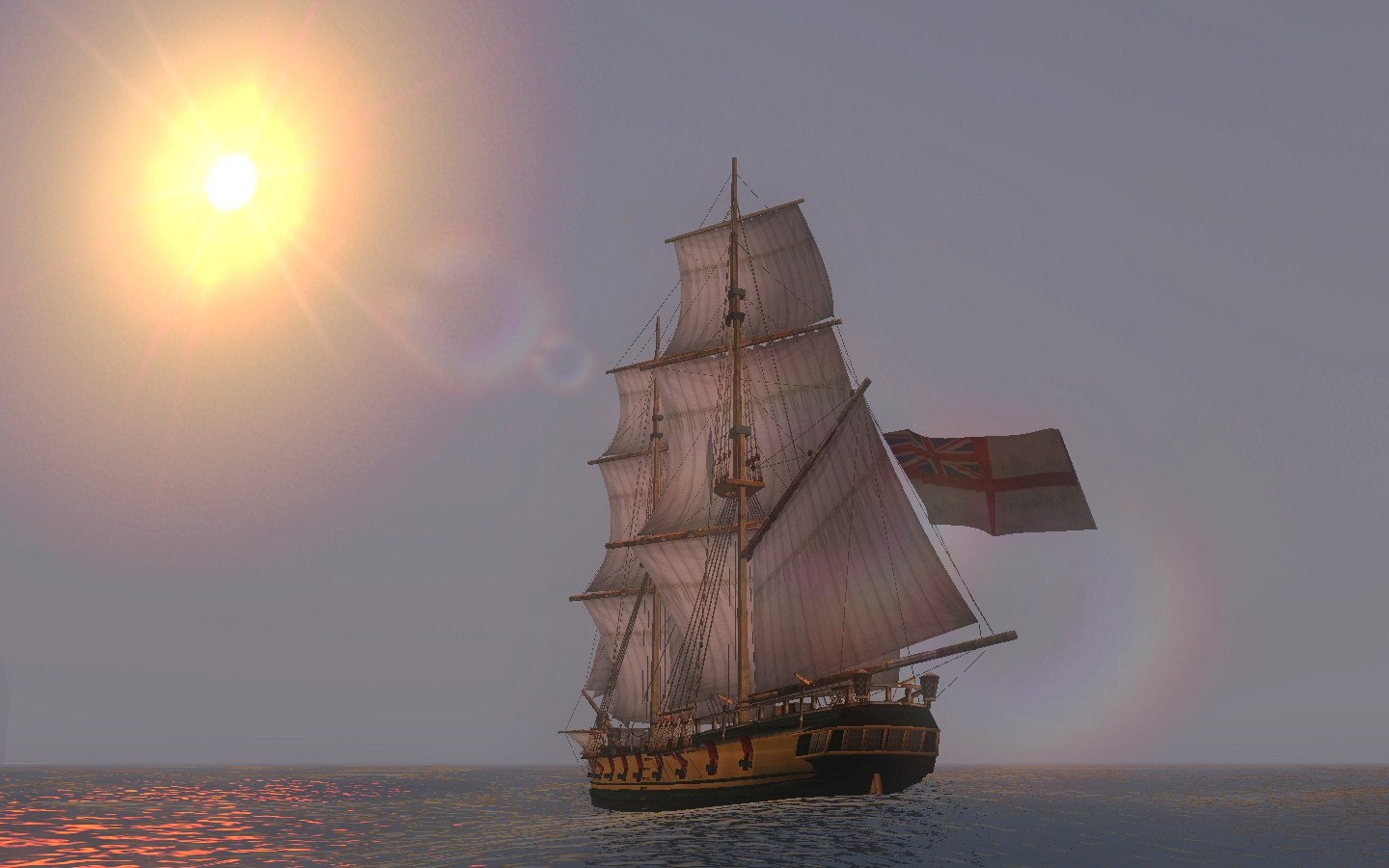
When videogames dally in the fantasy of Caribbean piracy, they lean towards the peglegs, the accordions, the cheery camaraderie, and the general feeling that every member of your burly crew is gloggled on gut-rotting moonshine at all times. Even the family-friendly Sea of Thieves has the raucous tone of a great seafaring pissup.
Beyond Sid Meier's Pirates, there aren't that many games that have attempted serious pirate simulation. A couple that did venture into these scarcely charted waters were the Sea Dogs and Age of Pirates series, both made by Russian studio Akella. In 2003, Sea Dogs 2 was rebranded to Pirates of the Caribbean just before release, when Disney licensed it as a movie tie-in. Aside from a few lines of narration from Keira Knightley and a retrofitted plot involving the fabled Black Pearl ship, the ties to the movies were tenuous, and development was rushed to sync up with the movie's release date.
It wasn't a great game on release, and yet it garnered a following that saw potential in the unfinished sea symphony. Over the next 17 years, up to this very day, modders joined forces to work on New Horizons, an unfathomably deep total overhaul mod for Pirates of the Caribbean. Today the community around the mod, known as Pirates Ahoy, totals over 8,000 members, and has turned a pokey pirate game into the deepest colonial Caribbean simulator ever made.
I call it that, because New Horizons expands beyond pure piracy and into the piracy-with-fancy-uniforms-and-bayonets known as colonialism. You can pick a starting date anywhere between 1500 and 1830, which will affect the colonial balance of power in the Caribbean, most of which has been recreated here, with dozens of islands and cities to visit.
There's an elaborate trade system, the ability to play as all major colonial powers (including the US from a certain era), several storylines let you step into the shoes of legendary pirates, reputation systems, morale systems, detailed crew management, dynamic alliances between AI, and the possibility of visiting a brothel and indulge is some nautically-themed naughty talk.
It's a ruthless simulation, and a project that's been passed down through generations of modders like an aged but steadfast Navy frigate. The compiler of the original mod Nathan Kell had just three goals when he started working on New Horizons (then known only as Build Mod) in 2003. "Fixing bugs and annoyances, improving realism and world depth, and porting over as much as I could from Pirates! Gold", he tells me. To that end, he added in nation relations, plunder division with the crew, and Letters of Marque that let you become a privateer.
It was definitely the sort of grab-bag ubermod that you often find groups of newbs making.
Nathan Kell
As a real-life sailor, Kell was unhappy with the arcadey feel of the game's sailing mechanics, so he began reworking them for greater realism, and also introduced the roots of an inter-island commodity trade system. "It was definitely the sort of grab-bag ubermod that you often find groups of newbs making (which we were!), rather than something with any kind of solid core or vision", he recalls.
The biggest gaming news, reviews and hardware deals
Keep up to date with the most important stories and the best deals, as picked by the PC Gamer team.
New Horizons eventually propelled Kell to full-time work in the games industry, where he worked for Squad on Kerbal Space Program before moving onto Valve. "New Horizons definitely helped set me on my path", he says. "Making things annoyingly realistic is a through-grain in my work, given I went on to make Realism Overhaul for Kerbal!".
In 2006 the project was taken over by Pieter Boelen, a maritime researcher who happened upon Pirates of the Caribbean in a bargain bin. "The original game was relatively basic," Boelen tells me. "There was one main quest; a few side ones; and some random quests like cargo deliveries and convoy quests. The game world was relatively small with perhaps eight fictional islands".
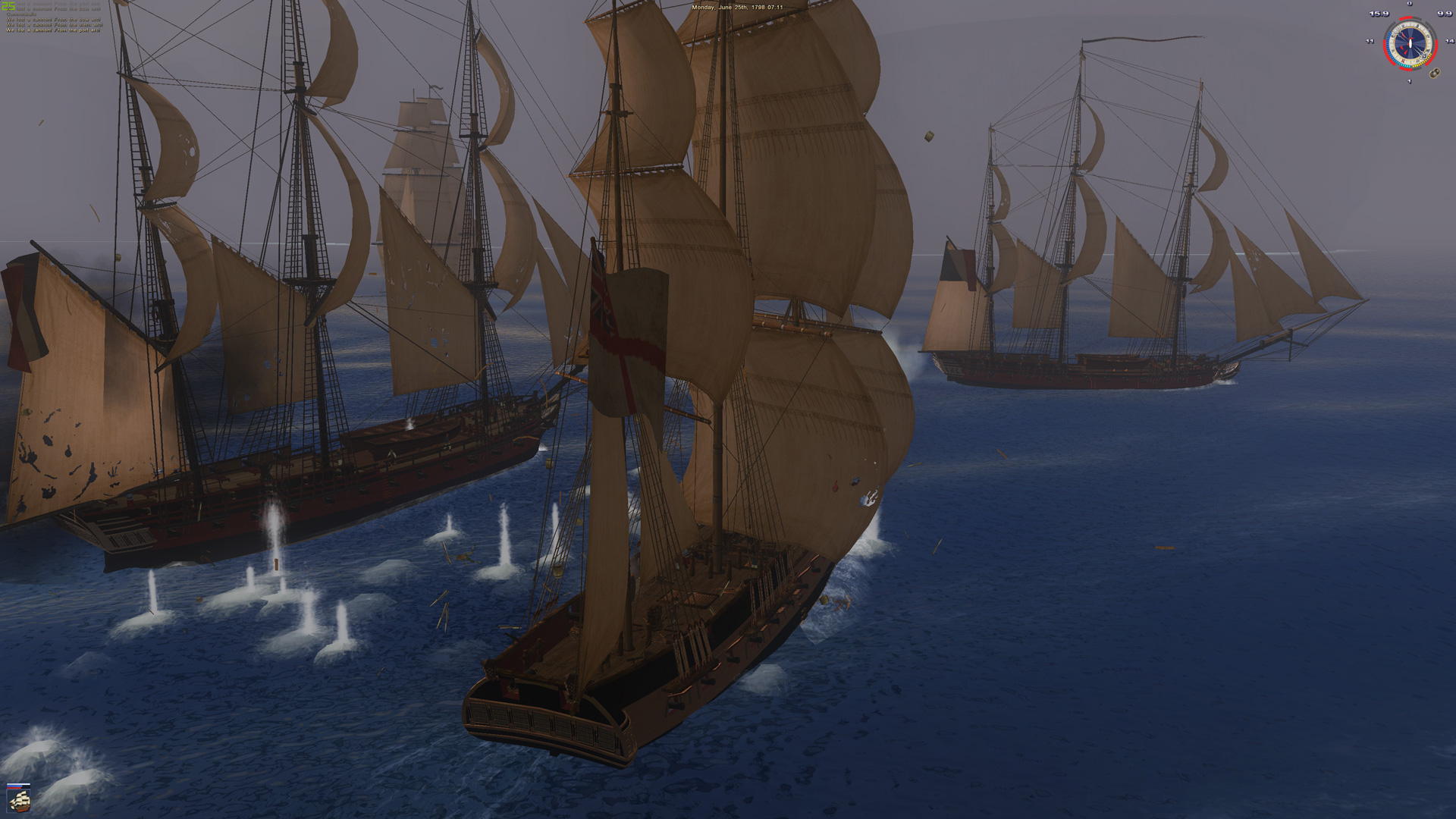
Even though Boelen took over some years into the project, there was still no ultimate goal for New Horizons other than to push the game code as far as it could go. "Effectively, the mod is a cumulative set of 'what people wanted to make', so it was quite a fluid, dynamic process", Boelen tells me. "Once people made a start going down certain paths, others would get excited and start building on their work".
The project was helped along by the fact that developer Akella left much of the code open from the off, and supplied modders with tools that allowed them to edit models, systems and texture files in the game. "The open code included all the interfaces and many of the underlying game mechanics, so we really had the freedom to change a lot", Boelen recalls. "We even managed to change things that the developers insisted were absolutely impossible with their game engine."
For example, start a game from the early 19th century onwards, and you get to use steam frigates, even though the engine isn't designed for the way they handle. Even more crucial to turning New Horizons into a fully immersive high-seas sim was DirectSail. Where in the base game you could only travel between different regions using an overworld map, DirectSail made the game world seamless, letting players sail the entirety of the Caribbean in real-time or in a new 30x 'compressed time' function.
"This was added by CouchcaptainCharles, who was super-creative and 'unhindered by prior knowledge," says Boelen. "He just kept trying until it worked". When this modder eventually left the scene, DirectSail was rewritten by another modder to work with in-game map coordinates, before others took over to finish the job.
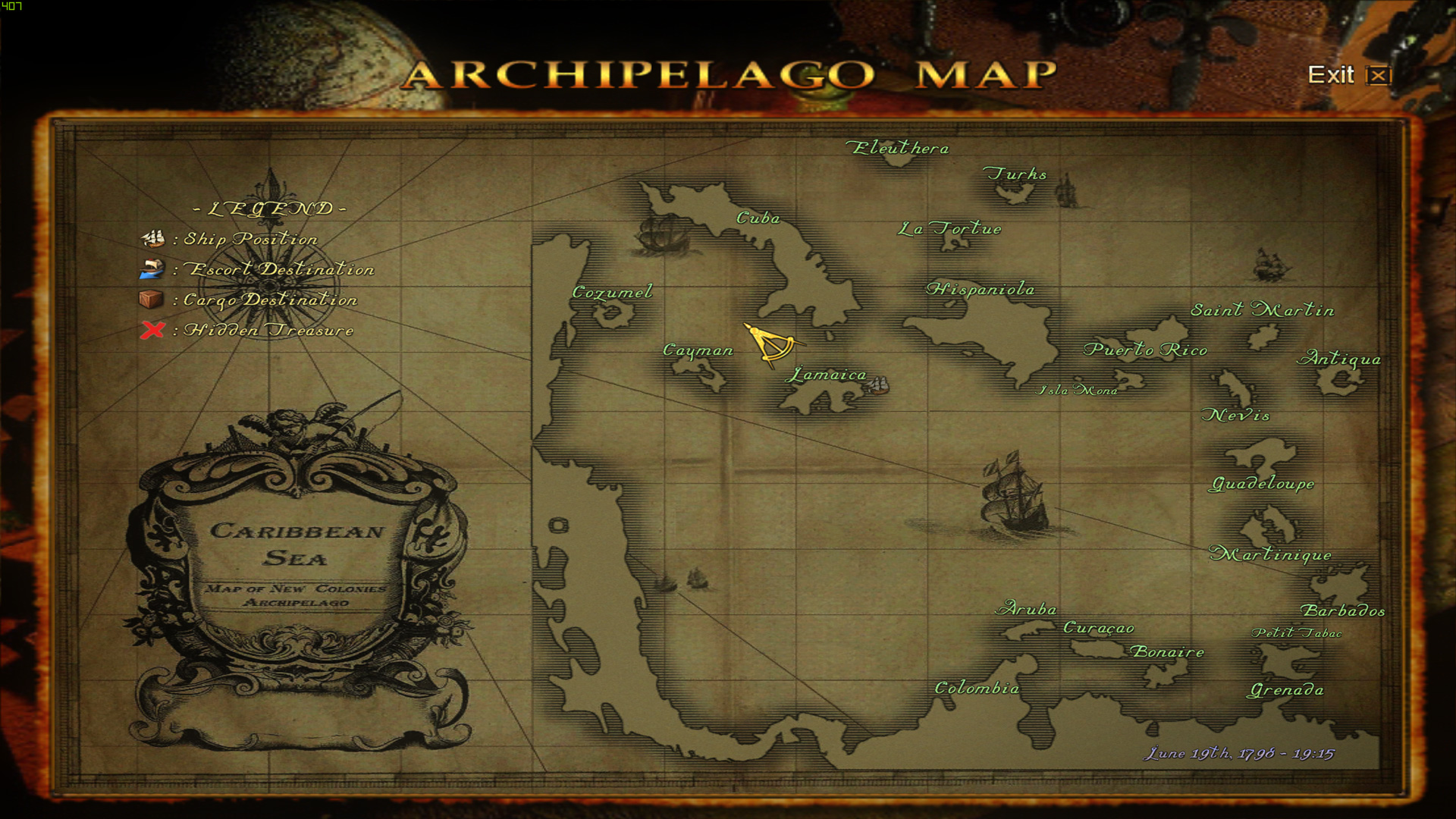
After being seduced by modders' tales of high-seas adventures and systemic depth, I decided to find out for myself how New Horizons actually plays.
We even managed to change things that the developers insisted were absolutely impossible with their game engine.
Pieter Boelen
My attempt to play the story of Charles Ardent was quickly aborted due to some niggling bugs, and I had more joy going into full freeplay mode, which offers the most freedom to play around with the game's systems. I started out as an officer of the Royal Navy, which put me at the helm of a Navy ship with plenty of resources and crew to get started. Tired of splitting my riches with a king and country many thousands of leagues away, I decided to go rogue and become the most professional pirate outfit in the Caribbean.
Also, 'The Redcoat Pirate' is a hell of a marketing gimmick, if I say so myself.
The game's systems feel exciting and responsive. Alliances between colonial powers can change at any moment, and at one point I pulled into a port city only to find it under siege by a ragtag pirate fleet, which offered plenty of riches for me to plunder when they inevitably failed. I roamed the seas, illicitly attacking British colonial vessels and merchant ships. Sure, I often found myself fleeing my own raids, but I still swiftly gained a level of notoriety that lost me my British citizenship and soon saw me flying the flag of the jolly roger.
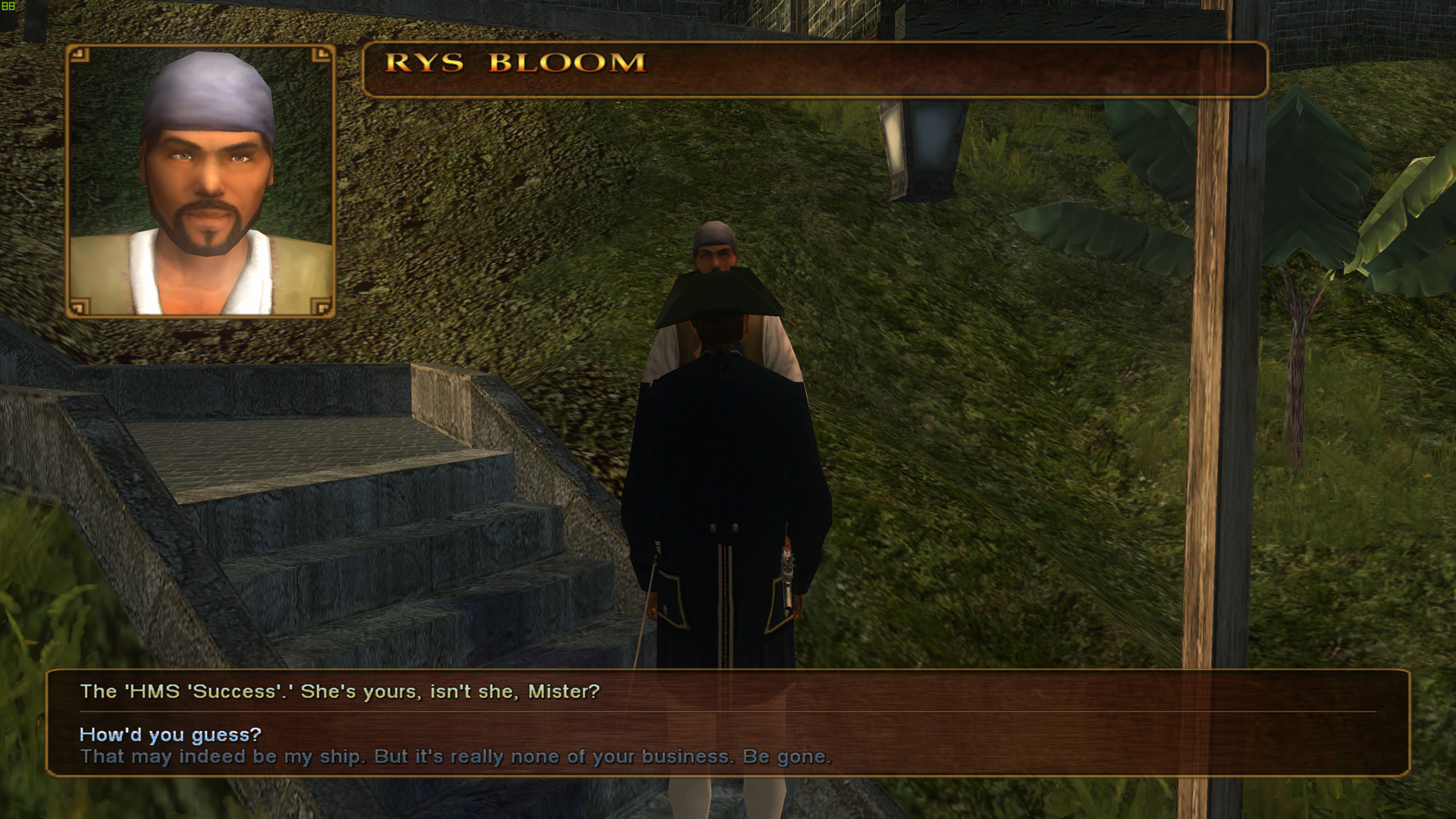
Going pirate lost me right of passage into colonial cities (though false flags and bribery of local governors can quickly fix that), and wiped out any hope of me marrying a governor's daughter. But that didn't matter. My rakish sea-rat captain had love only for the ocean, and the only kisses he craved were the briny ones of ocean spray. So I joined the Pirate Brotherhood, which has its own progression and quest system much like working for a specific nation or as a privateer.
The seafaring mechanics are excellent, and enthusiasts can opt for the 'Realistic' sailing mode which greatly impacts sailing mechanics based on your ship's rigging. Unfavourable winds on this setting can even force you to take roundabout routes to your destination, and seafaring know-how far above my station is required to navigate the game this way.
It's only on land that you really feel the engine's age. Combat is stiff and simplistic, and the added-in sidestep function risks clipping you through the scenery. Wandering around the various cities and port towns offers up plenty of whimsical dialogue interactions with locals, and you can even go treasure-hunting on land in temples and crypts, but there's no question that this game is most at home out on the waters.
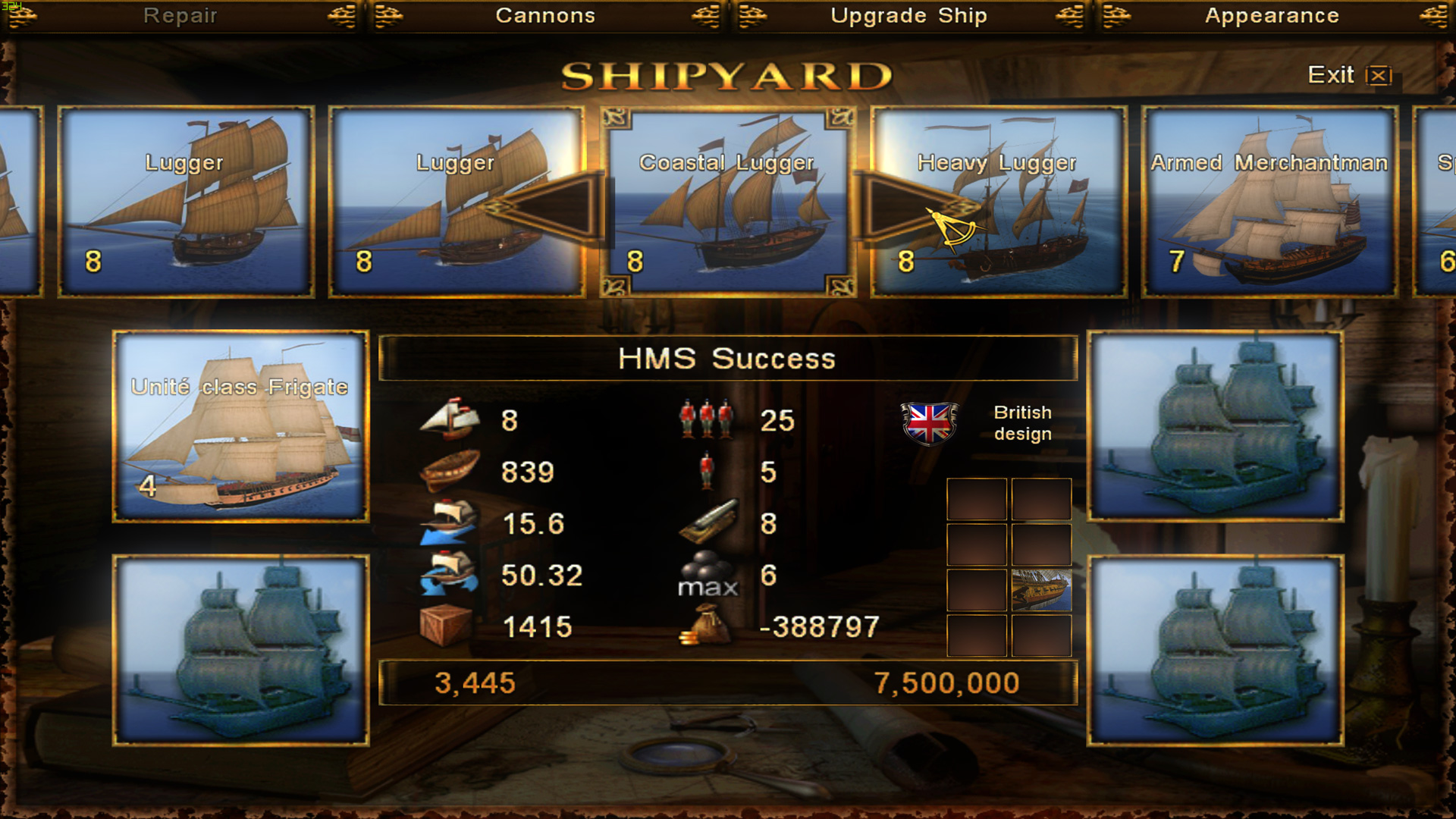
With later Sea Dogs and Age of Pirates games using updated versions of PoTC's Storm Engine, the opportunity has always been there to upgrade New Horizons from an engine that, for all its impressive mileage, is at the limits of what can be accomplished with it. There have been attempts to make a New Horizons remaster from the ground up in Unity, as well as a spiritual successor called Hearts of Oak: Conquest of the Seas, but the time and resources required for these to match the vast scope of New Horizons meant that they were ultimately abandoned. 17 years on, it still looks unlikely that an independent studio or mod community can make a worthy follow-up to this still-growing behemoth.
New Horizons is also at the very heart of Pirates Ahoy, and moving the project onto a different engine or starting from the ground up always risks fragmenting the existing community. Even though the forums boast thousands of members across a dozen boards relating to various pirate games, the New Horizons board is by the far the most popular, and there's a sense that creative camaraderie around it remains integral to keeping the community alive. Boelen takes pride in the size and diversity of the community, listing off to me key New Horizons contributors from 15 countries across five continents.
By becoming bound to the project, this community has pushed a seemingly outmoded game engine far beyond what its own creators thought possible. Yes, the nitty-gritty of character models and sword combat look about as good as a scurvied sailor washed up on Brighton Beach, but its interlocking systems, detailed ships and precise sailing mechanics capture a seafaring fantasy like few other games.
If you fancy setting sail in New Horizons, you'll need to own Pirates of the Caribbean. As it can't be purchased on any digital stores, you either need to buy a second-hand disk or can maybe morally (if not strictly legally) justify downloading it from an abandonware site. You'll then need to grab Build 14 Full Part 1, Built 14 Beta 4.0 Part 2, and Extra Fix Archive of New Horizons from ModDB.
Robert is a freelance writer and chronic game tinkerer who spends many hours modding games then not playing them, and hiding behind doors with a shotgun in Hunt: Showdown. Wishes to spend his dying moments on Earth scrolling through his games library on a TV-friendly frontend that unifies all PC game launchers.

